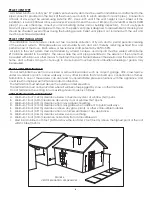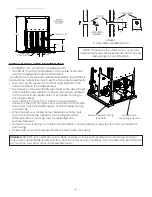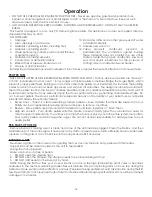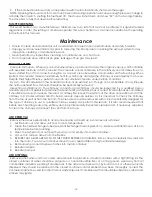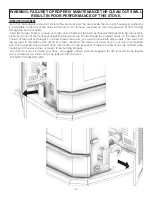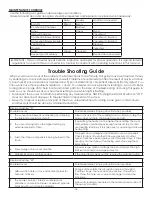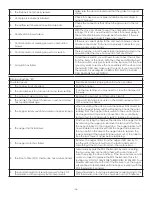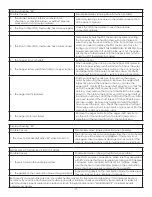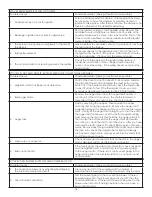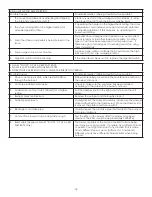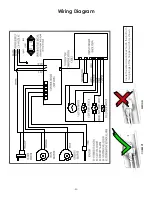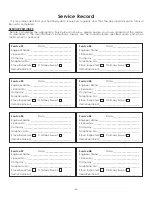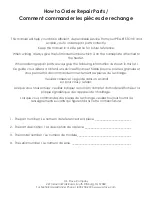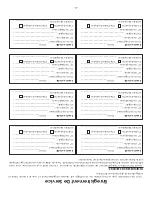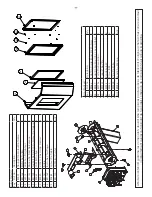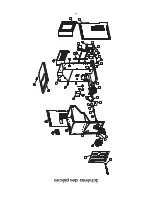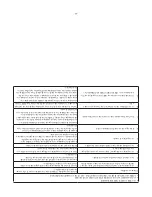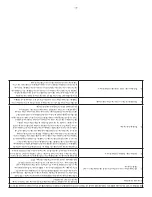
-19-
HIGH LIMIT SWITCH KEEPS TRIPPING
Possible Causes
Possible Remedies: (Unplug stove first when possible)
1. The convection blower is overheating and tripping
the internal temperature shutoff.
Clean any dust off of the windings and fan blades. If oiling
the blower does not help, the blower may be bad.
2. The stove is being left on the highest setting for
extended periods of time.
If operating the heater on the highest heat setting, the room
temperature could increase enough and lead to potential
overheating situations. If this happens, try operating at a
lower heat setting.
3.
Fuel other than wood pellets is being burned in the
stove.
This pellet stove is designed and tested to use wood pellets.
Check for signs of fuel other than wood pellets. No other
types of fuel have been approved for this pellet stove. If
there are signs of other types of fuel being used, stop using
them immediately.
4. Power surge or brown out situation.
A power surge, spike, or voltage drop could cause the high
limit switch to trip. Use a surge protector.
5.
High limit switch is malfunctioning.
If the other items check out OK, replace the high limit switch.
• GLASS “SOOT’S” UP AT A VERY FAST RATE
• FLAME IS LAZY, DARK, AND HAS BLACK TIPS
• AFTER STOVE HAS BEEN ON FOR A WHILE, THE BURNPOT OVERFILLS
Possible Causes
Possible Remedies: (Unplug stove first when possible)
1. Stove or vent pipe is dirty, which restricts airflow
through the burnpot.
Follow all cleaning procedure in the maintenance section of
the owner’s manual.
2. Vent pipe installed improperly.
Check to make sure the vent pipe has been installed
according to the criteria in the owner’s manual.
3. Air damper is set too far left (closed) for a higher
setting.
Pull the damper knob to the right and try to burn the unit
again.
4.
Burnpot holes are blocked.
Remove the burnpot and thoroughly clean it.
5. Air damper is broken.
Visually inspect the damper assembly. Make sure the damper
plate is attached to the damper rod. When the damper rod
is moved, the plate should move with it.
6. Blockage in air intake pipe.
Visually inspect the air intake pipe that leads into the burnpot
for foreign material.
7.
Combustion blower is not spinning fast enough.
Test the RPM on the blower after the blades have been
cleaned. The RPM should be approximately 3000 RPM.
8.
Bad Pellets (Applies to GLASS “SOOT’S” UP AT A VERY
FAST RATE Only)
The brand of pellets or the batch of pellets that are being
used may be of poor quality. If possible, try a different brand
of pellets. You might also want to try a brand that is made
from a different type of wood (softwood vs. hardwood).
Different woods have different characteristics when being
burned.


